It’s hard to believe this is the final week of mentorship for TechWomen 2019 Emerging Leaders (ELs) in the San Francisco Bay Area. After sitting down for coffee with tech executives, attending conferences on emerging technologies and pitching their ideas to social impact leaders, ELs are reflecting on a whirlwind 15 days of mentorship and putting the finishing touches on their mentorship projects.
After close collaboration with their Professional Mentors, each EL began their mentorship by developing a project that both uses their existing skill set and leverages their host company resources to help them achieve their professional goals. Here are just a few of the projects they’ve developed with the support of their mentors and host companies:
UI and UX design at Twitch | Angele Messa, Cameroon
By the end of her first week at Twitch, Angele’s original e-learning project took on a new direction. As the founder of EduClick, an e-learning platform, Angele knew that design was an essential component. “So I decided to learn about design,” she says, “and I took a project with the design team. It’s focused on UI and UX design, researching and implementing changes to the developer’s documentation landing page.”
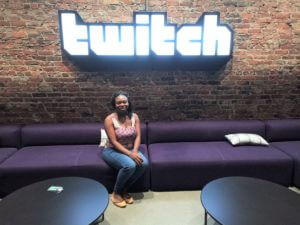 Diving into a new project required Angele to learn new skills, acclimate to new software and do plenty of research. After organizing a meeting with the design team and getting and getting tutorials on the company’s software, Angele got to work: she drafted a project description and action plan, and this week, she’s interviewing AAA developers to develop design options. Angele feels her new skills will enable her to develop platforms at EduClick with optimized user experience, helping users navigate the platform and get an enhanced learning experience. She’s also grateful for the diversity of experience at Twitch. “Our mentors put together contacts to make sure we get the best out of the program. We’ve had outdoor meetings, partnership proposals and fun. We’ve visited Google, had a one-on-one with the head of ecosystem for Sub-Saharan Africa at Google and met the head of global programs at Women Techmakers. My biggest takeaway are the skills I’ve developed while working on my mentorship project and the resources obtained by being exposed to my mentors’ large network.”
Diving into a new project required Angele to learn new skills, acclimate to new software and do plenty of research. After organizing a meeting with the design team and getting and getting tutorials on the company’s software, Angele got to work: she drafted a project description and action plan, and this week, she’s interviewing AAA developers to develop design options. Angele feels her new skills will enable her to develop platforms at EduClick with optimized user experience, helping users navigate the platform and get an enhanced learning experience. She’s also grateful for the diversity of experience at Twitch. “Our mentors put together contacts to make sure we get the best out of the program. We’ve had outdoor meetings, partnership proposals and fun. We’ve visited Google, had a one-on-one with the head of ecosystem for Sub-Saharan Africa at Google and met the head of global programs at Women Techmakers. My biggest takeaway are the skills I’ve developed while working on my mentorship project and the resources obtained by being exposed to my mentors’ large network.”
Maximizing leadership at Mozilla | Kyzzhibek Batyrkanova, Kyrgyzstan
Before she traveled to the U.S., Kyzzhibek knew exactly what she wanted to learn during her mentorship at Mozilla. As the program director for the Kyrgyz Space Program, Kyzzhibek is leading an all-women team that is building and launching Kyrgyzstan’s first satellite in a few years’ time. At Mozilla, she wanted to focus on the sustainability of both their space program and their tech camps initiative. “Our program mainly consists of college-age students who did not previously have any knowledge or experience in aerospace engineering,” she says. “As a leader of this program, I make sure that our team learns from the best, grows and shares our knowledge with people in our region. Mozilla follows the same principles, ensuring that people feel comfortable at their workplace. It is the perfect place to learn how to become a greater manager and advocate for STEM education.”
Over the past few weeks, Kyzzhibek has met specialists from various backgrounds and departments, all of whom are mission-driven and thriving at their jobs. “Our amazing mentors arrange meetings with different people who work at Mozilla or other tech companies,” she says. So far, she has toured Khan Academy and discussed leveraging their courses for STEM education in Kyrgyzstan, and visited the Mozilla offices in San-Francisco to learn more about the Internet of Things and WebThings Gateway. One of best pieces of advice she has picked up was from chairwoman of Mozilla Mitchell Baker, who said “The most important things do not fit into your resume.”
Although her mentorship is coming to a close, Kyzzhibek knows there’s still work to do: “We still have six days and more great things to do in our host company!”
Using cutting-edge technology at Chan Zuckerberg Biohub | Insaf Ben Hadj Ali, Tunisia
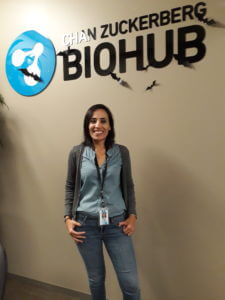 When beginning her mentorship at CZ Biohub, Insaf, a molecular biologist, was eager to gain hands-on experience with new technologies. Through reading studies and papers published by the biohub, Insaf was able to identify a project she could develop: designing an assay for the disease she’s researching in Tunisia using technologies available at the biohub. “As soon as I arrived, we started the project,” she says. “We shared our mutual experiences, and it was very valuable for both mentor and mentee.”
When beginning her mentorship at CZ Biohub, Insaf, a molecular biologist, was eager to gain hands-on experience with new technologies. Through reading studies and papers published by the biohub, Insaf was able to identify a project she could develop: designing an assay for the disease she’s researching in Tunisia using technologies available at the biohub. “As soon as I arrived, we started the project,” she says. “We shared our mutual experiences, and it was very valuable for both mentor and mentee.”
Insaf also hoped to expand her network, seeking out future collaborators and contacts for her projects in Tunisia. Her mentors supported her by arranging meetings with experts in her field, including an inspiring discussion with a female researcher working at USCF. Insaf has had plenty of opportunity to share her work as well: early on in her mentorship she gave a seminar where she shared her projects from the Institut Pasteur of Tunis. After just a few weeks at the biohub, Insaf already has results of her assays and has compiled enough preliminary data to write a proposal and submit it for national and international grants. “I am so excited about this!” she says. “It will be a great and innovative project to implement in my lab.” Armed with new knowledge about some of the most novel and revolutionary techniques used in life sciences, Insaf feels ready to return to Tunisia with new ideas and new collaborators: “My mentorship was very inspiring for me — I feel like I am full of energy and ideas.”
Preparation for Pitch Day
Week three concluded at the Microsoft Reactor in San Francisco for Action Plan Workshop 3, where ELs developed, refined and practiced their action plan pitches. The day kicked off with Impact Coach Eileen Brewer speaking about the essential elements of a successful pitch. Through real-world examples, Eileen showed ELs the various strategies on illustrating a problem, telling a story and presenting a sustainable solution. ELs were then challenged with stating their problem statements with a partner in 30 seconds or less — and keeping it to two sentences.
ELs spent the rest of the day practicing telling captivating stories, working on speaking confidently and with purpose. Impact Coaches ended the day with parting advice on creating a high-impact pitch, encouraging ELs to power pose and breathe deeply. Perhaps most important, however was the advice to get excited: in just a few days ELs will be taking the stage at Netflix, pitching their innovative projects to a crowd eager to celebrate and support them.
Before returning to their mentorships the following day, ELs had another activity to get excited about: the first-ever TechWomen Family Dinner series. Mentors throughout the Bay Area opened their homes to groups of ELs for dinner, giving them an opportunity to experience a small slice of life in the Bay Area. They cooked food from the United States and all over the world, shared cultures and spent time together before the final Bay Area portion of TechWomen 2019.
Follow along on Twitter, Instagram and Facebook as ELs wrap up their mentorships, pitch their projects at Netflix and come together at the Community Celebration before heading to Washington, D.C.!

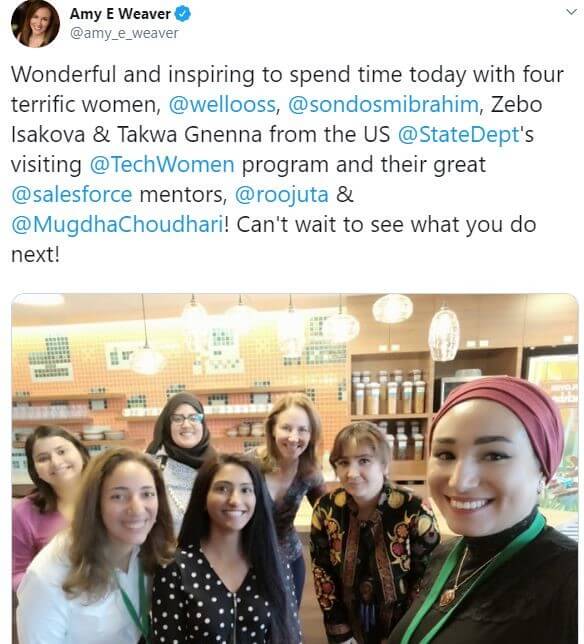
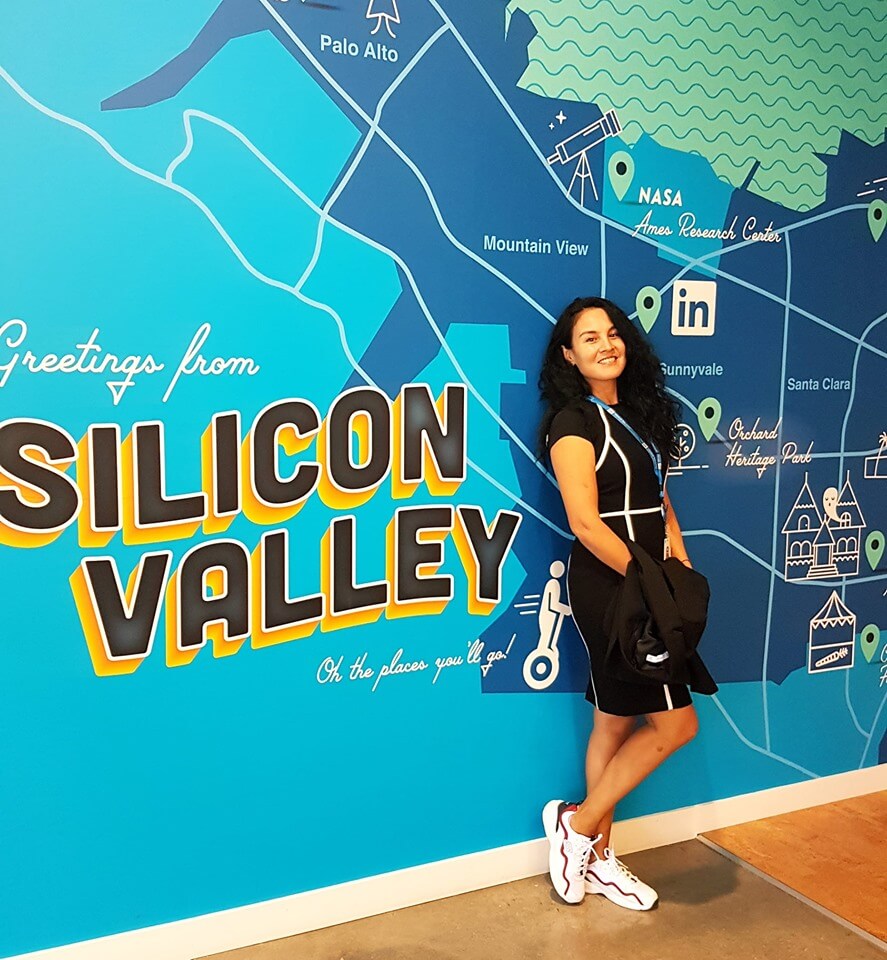
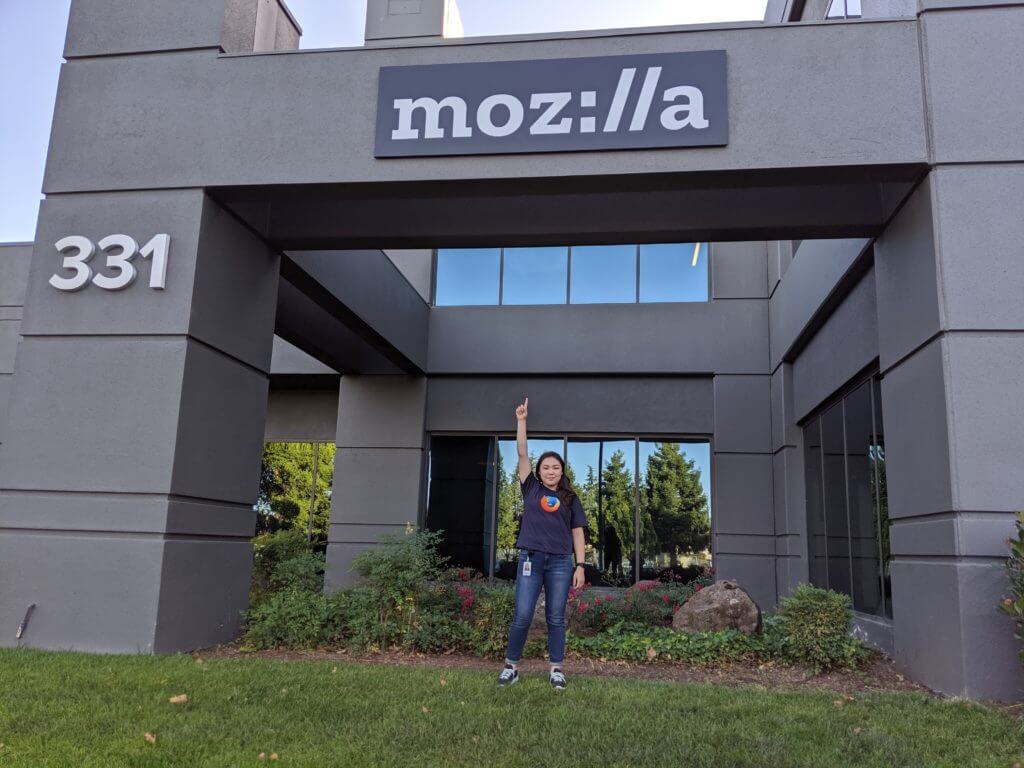
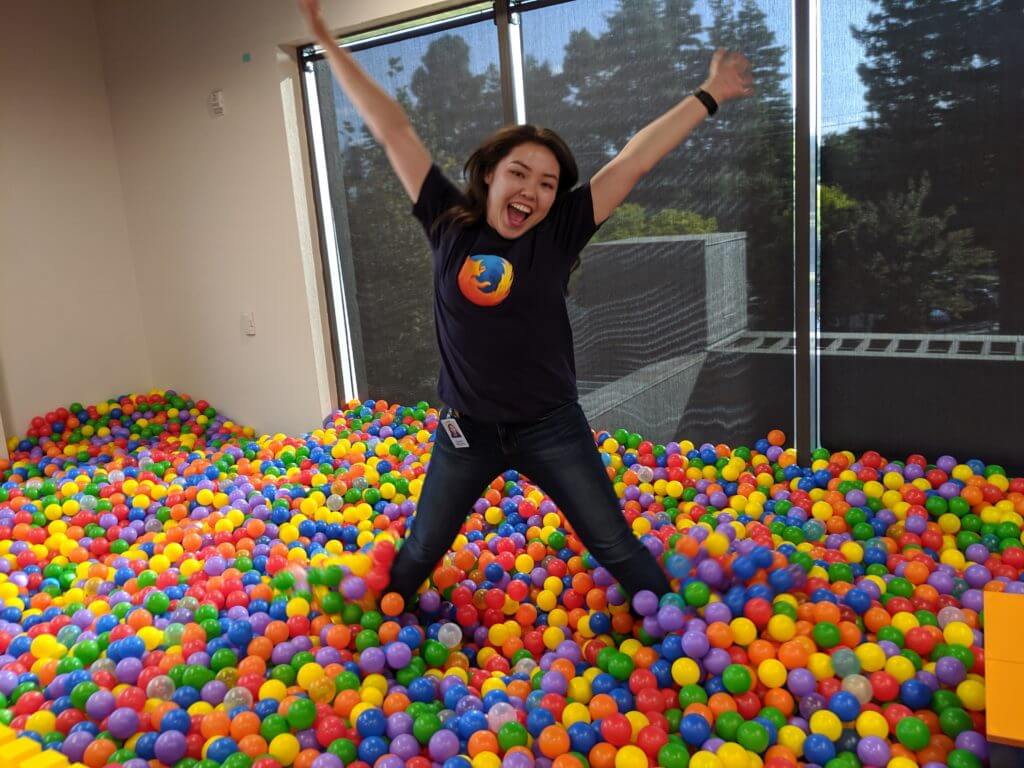
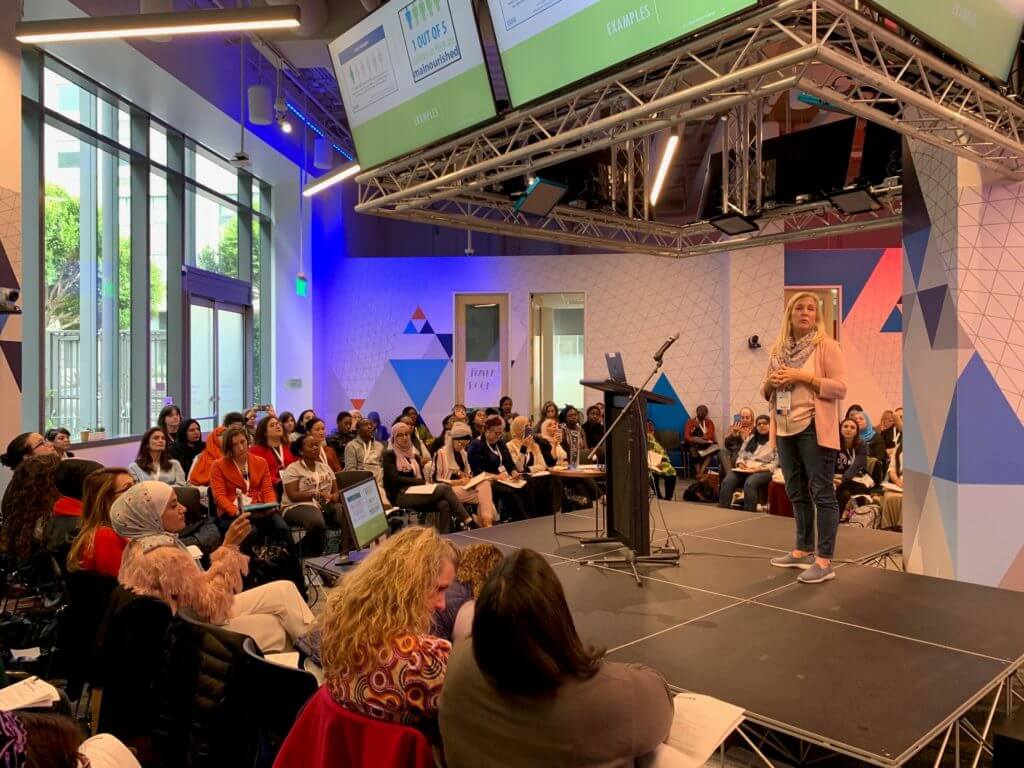
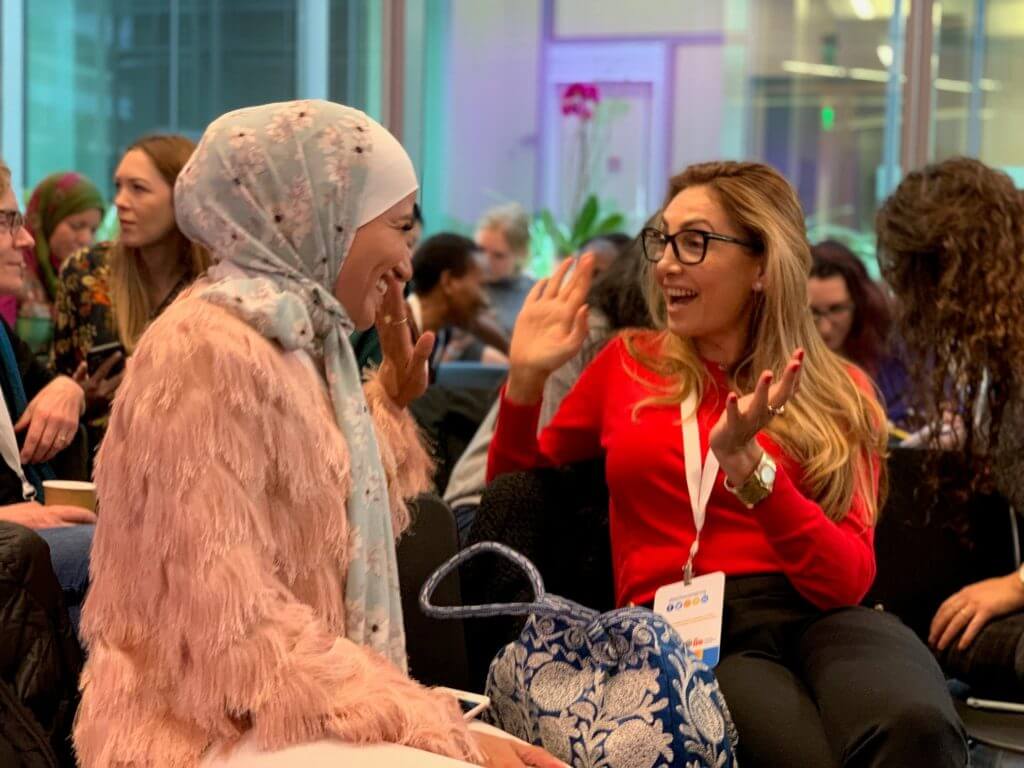
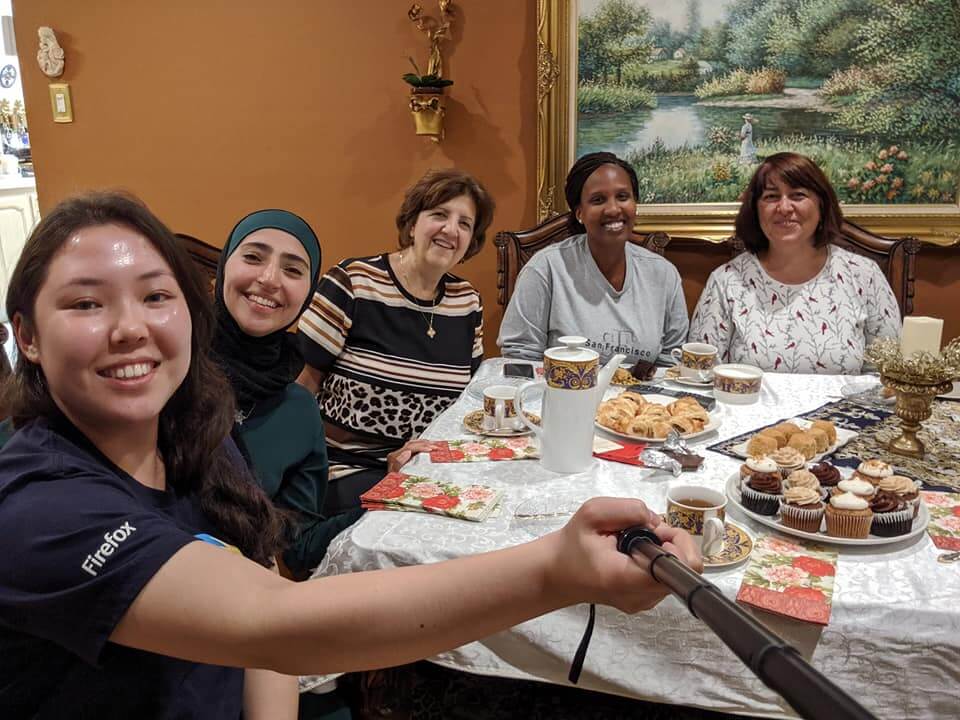
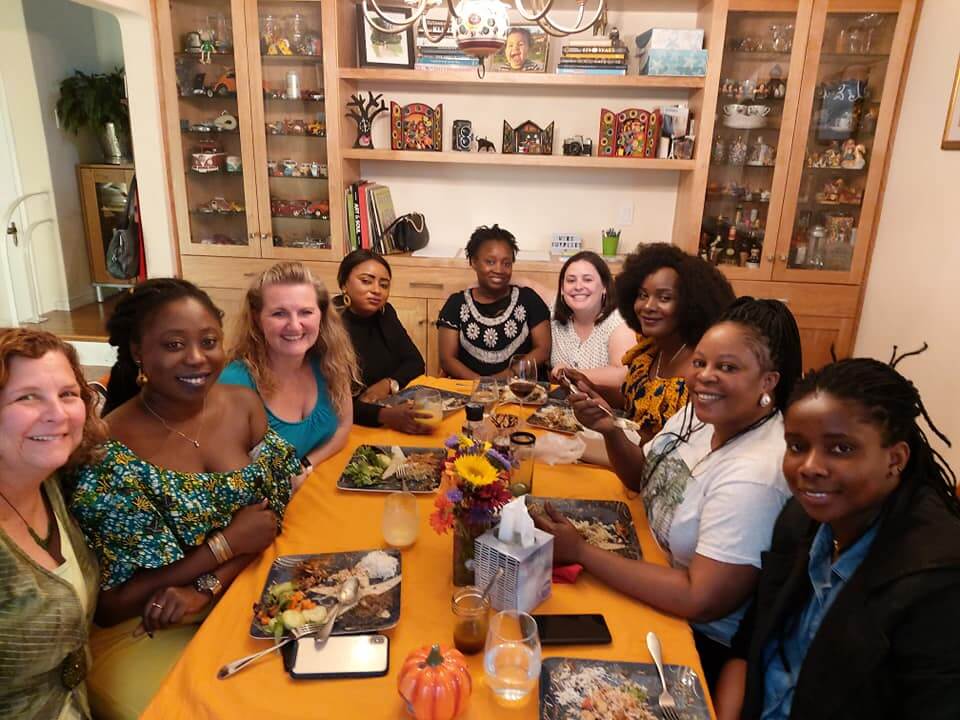


Speak Your Mind